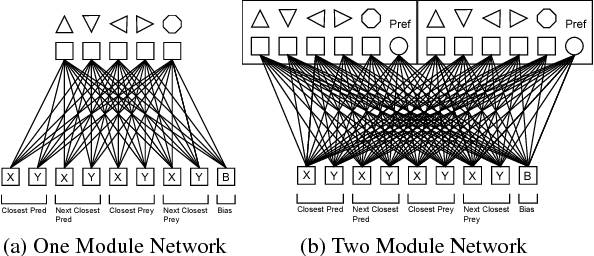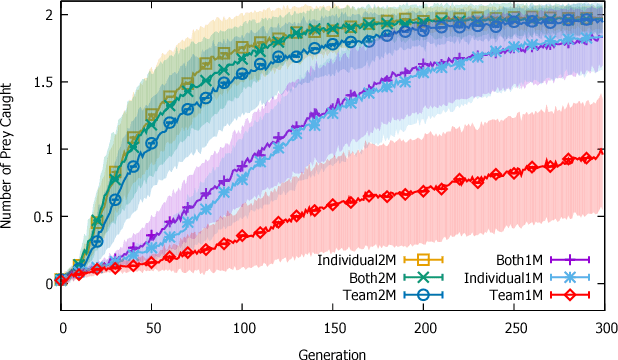Balancing Selection Pressures, Multiple Objectives, and Neural Modularity to Coevolve Cooperative Agent Behavior
Paper and Code
Mar 24, 2017

Previous research using evolutionary computation in Multi-Agent Systems indicates that assigning fitness based on team vs.\ individual behavior has a strong impact on the ability of evolved teams of artificial agents to exhibit teamwork in challenging tasks. However, such research only made use of single-objective evolution. In contrast, when a multiobjective evolutionary algorithm is used, populations can be subject to individual-level objectives, team-level objectives, or combinations of the two. This paper explores the performance of cooperatively coevolved teams of agents controlled by artificial neural networks subject to these types of objectives. Specifically, predator agents are evolved to capture scripted prey agents in a torus-shaped grid world. Because of the tension between individual and team behaviors, multiple modes of behavior can be useful, and thus the effect of modular neural networks is also explored. Results demonstrate that fitness rewarding individual behavior is superior to fitness rewarding team behavior, despite being applied to a cooperative task. However, the use of networks with multiple modules allows predators to discover intelligent behavior, regardless of which type of objectives are used.
 Add to Chrome
Add to Chrome Add to Firefox
Add to Firefox Add to Edge
Add to Edge